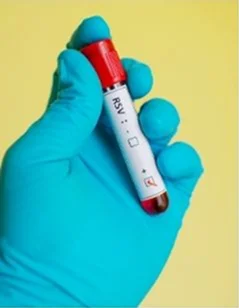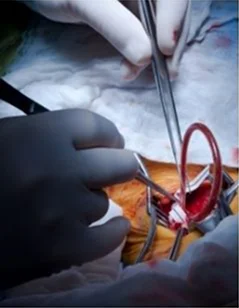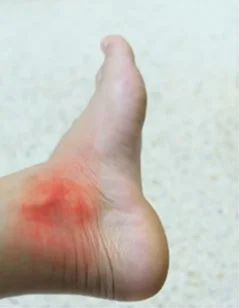Respiratory syncytial virus (RSV) infection is highly contagious and often presents as a mild cold. While it typically affects children at around two years of age, RSV can cause severe illness in both infants and adults. In fact, RSV can lead to bronchitis and pneumonia, making it a serious concern..
By identifying RSV symptoms at an early stage, it may be possible to determine the severity of the infection. Nevertheless, medical professionals caution that there is a significant distinction between the common flu and RSV, which necessitates seeking medical treatment.
Some Common Symptoms of RSV
Both children and adults are prone to experiencing typical cold-like symptoms, including but not limited to:
- Sore throat
- Coughing
- Fatigue
- Sneezing
- Headache
- Runny or stuffy nose
- Fever
Medical professionals have confirmed that respiratory syncytial virus infection is highly contagious among infants, children, and adults for a period of 3 to 8 days. Individuals with weakened immune systems are at a higher risk of contracting the virus. The virus is transmitted through droplets from the nose and throat, and can persist on surfaces, hands, and clothing.
If you are caring for an individual who is experiencing RSV symptoms, it is critical to be mindful of your own health. Avoiding contact with someone who has the virus, frequently washing your hands, and maintaining a healthy immune system are all essential steps to protect yourself.
RSV vs. Flu Symptoms
Identifying RSV symptoms can be difficult, as they are similar to those of a common cold or other respiratory problems. However, the key distinction between these illnesses lies in how the symptoms manifest.
Influenza typically begins with aches and pains, which then progress to other symptoms. Conversely, RSV symptoms typically start with a cold and progress to respiratory symptoms like coughing and wheezing.
To determine which virus is causing your illness, it is advisable to undergo a combined flu and RSV test. This test will identify the virus you are infected with, enabling your physician to provide appropriate guidance and treatment.
Treatment for RSV
Currently, there is no specific treatment available for RSV, and researchers are actively working to develop antiviral medications and vaccines. Fortunately, most cases of RSV infection are mild and do not require formal medical treatment.
According to medical professionals, RSV infections typically resolve on their own within one to two weeks. However, it is crucial to seek prompt medical attention for infants, as they may require hospitalization. It is important to take appropriate measures when caring for infants with RSV. Additionally, certain tips can help alleviate RSV symptoms at home.
When caring for a baby with RSV, follow these tips:
- Avoid using non-aspirin fever reducers.
- Encourage the baby to drink plenty of fluids such as water, juices, and sports drinks.
- Ensure the baby gets enough rest.
- Clear the baby's nose before offering fluids.
- Avoid using cold medicines available at home.
- If you have any doubts regarding RSV symptoms or your baby's health, do not hesitate to consult medical professionals or pediatricians.
When to Consider RSV As an Emergency?
Children and adults without underlying health conditions aged over two years are likely to experience no more than cold-like symptoms. They should recover within a week. However, in some cases, adults and children as young as six months contracting RSV can face severe health issues.
However, airway swelling can lead to respiratory distress in such cases. It is important to consider the current health status to determine the severity of the condition.
If you notice any of the following symptoms, it's important to seek medical attention immediately. Contact medical professionals or visit an urgent care facility.
- Drowsiness
- Wheezing
- Cough and other progressing symptoms
- High fever
- Trouble breathing
- Fingernails and lips turning blue
Medical professionals will provide emergency care that may include IV fluids for dehydration and breathing treatments if necessary.
What to Do When You Have RSV Symptoms?
RSV infection is more likely to spread during the winter months, and children can contract it through daycare or school. It is highly contagious and can spread through surfaces, but frequent hand washing is an effective preventative measure.
If your school-going children show RSV symptoms, it's advisable to keep them away from younger infants. Seeking medical attention for children is essential, as they require 24/7 care to recover from the illness.
Conclusion
Respiratory Syncytial Virus Infection (RSV) is an illness that commonly spreads during winter, and its severity can vary among children, adults, and infants. To ensure the best possible outcome, seeking medical attention is recommended in order to assess the severity of the illness and take appropriate action.





.webp)


%20(1).png)
.png)
%20(1).png)


%20(1).png)




%201.png)
